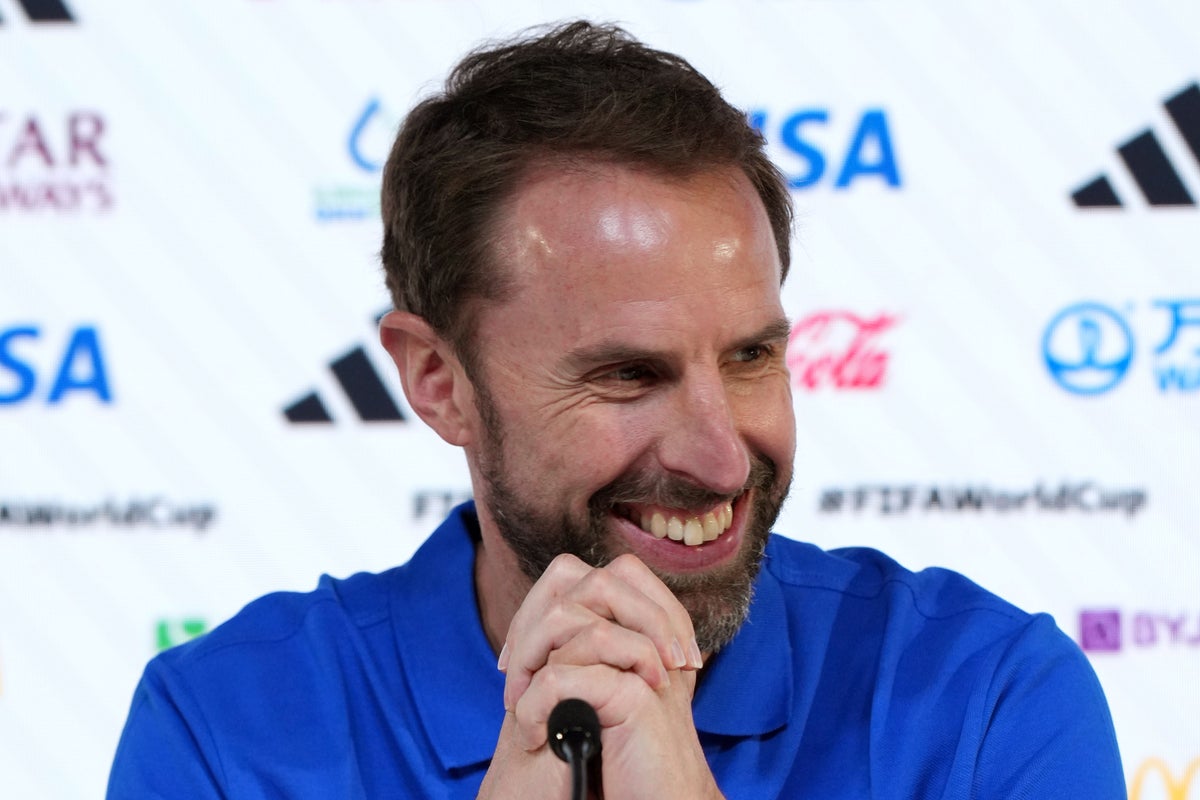
As England prepare to embark on another World Cup campaign, it is worth remembering where we were at the start of the last one. Two years of improved results and performances under Gareth Southgate had not sufficiently lifted the sense of inertia around the national team that had set in some six years earlier and solidified after that defeat to Iceland. The night qualification for the 2018 finals was secured, with a 1-0 victory over Slovenia, that feat was a footnote. Headlines instead related to bored supporters throwing paper planes onto the Wembley pitch.
In a way, a lot has changed. Southgate often spoke during his first few years in the job about reconnecting the team with its public. A first World Cup semi-final since 1990 achieved that. At Euro 2020, the run to their first major tournament final since 1966 only strengthened that bond. Yet, since the disappointment of that penalty shoot-out defeat to Italy, cracks have appeared. The England manager’s selections have been questioned. His apparent pragmatism and conservatism have been criticised. The focus has shifted from how far this team have come under his management to where – if anywhere – they are going.
England expects, ahead of Group B’s opener against Iran later today, but it is not entirely clear what it is expecting. There is a widely held view that this is the most talented group of English players in a generation and – despite a lack of depth in certain areas – it is not entirely without merit. Many of those who make that argument also contend that the same players are being held back by their manager. A semi-final place or further would be par for the quality in the squad, the thinking goes, but the number of supporters who believe Southgate capable of taking England that far has diminished.
It all feels unjust on a manager who took over at what was arguably English football’s lowest ebb in decades but has produced a competitive and likeable team that have saved their best performances for tournament football. Southgate’s apparently declining popularity is also a change from how England managers usually fall from favour. His stock is far, far higher with the press than it is with the public. Perhaps the easiest way to explain it is that this is the burden Southgate has to bear for doing what few of his predecessors managed and thus raising expectations.
When you step back, it makes an unfortunate kind of sense that, after losing a semi-final, winning a Nations League third-place play-off and finishing as runners-up at their last tournament, for many, only England winning this World Cup will count as progress. “Maybe we’ve made the impossible just look possible, would be the analogy,” Southgate said on the eve of the Iran opener, after it was noted that several of his more high-profile contemporaries – such as Mauricio Pochettino and Thomas Tuchel – are publicly and privately positioning themselves as his potential successor.
Southgate’s job is now a far more attractive proposition than when he took it up in 2016, and that is down to Southgate. “Maybe we’ve made it look possible and its exciting for other people – I can understand that. We want England to be competitive for years to come and I believe that our academy system has got that,” he added. But – and this really should not need saying to anyone familiar with the England national team’s 150 years of existence – success is far from guaranteed.
“I think there are challenges within that because we’re back to 31 per cent of the league being eligible for England and only four or five exports of a high level, so there are still some challenges for us in terms of development of players and opportunity for players,” Southgate was at pains to point out. It is a reminder to his critics – and those who would consider stepping into his shoes – that he has forged his two deep major tournament runs from a strong but shallow pool of talent.
Jordan Pickford has been one of the most important figures of the Southgate era. “I think in football it’s never going to be smooth sailing all the way,” he said at England’s base camp in Al Wakrah on Sunday. “I feel like we’ve come that far over the last four years: semi-final and then a final, two major tournaments. We know what we are expecting. The media and the public expect a lot more from us now and it’s about us showcasing what we can do as a nation. All we want to do is do our best and hopefully make the nation proud.”

That will involve turning around the worst period of form of the Southgate era. England start their World Cup campaign without a win in the last six, though the circumstances of the summer’s Nations League outings were the end of a long, Covid-interrupted season. The concept of form in international football is a strange thing in any case. “What there is, is pedigree,” said Southgate. “We want to be a Germany: I was looking at their Wikipedia page – four golds, four silvers, four bronzes; European Championships: three golds, three silvers, three bronzes. Yeah, our page didn’t quite look like that.”
It looks a little better than it did on the eve of that last World Cup, though. Southgate’s biggest problem four years later is that, by raising the bar, he has to clear it again.
That has always been the nature of this impossible job, even when it does not seem so impossible. “I remember watching the re-run of 1966, I think we were 2-1 up and the team passed backwards and the crowd were booing,” Southgate recalled, on the eve of a defining tournament for his England tenure. “Plus ça change, as they say.”


.png?w=600)




